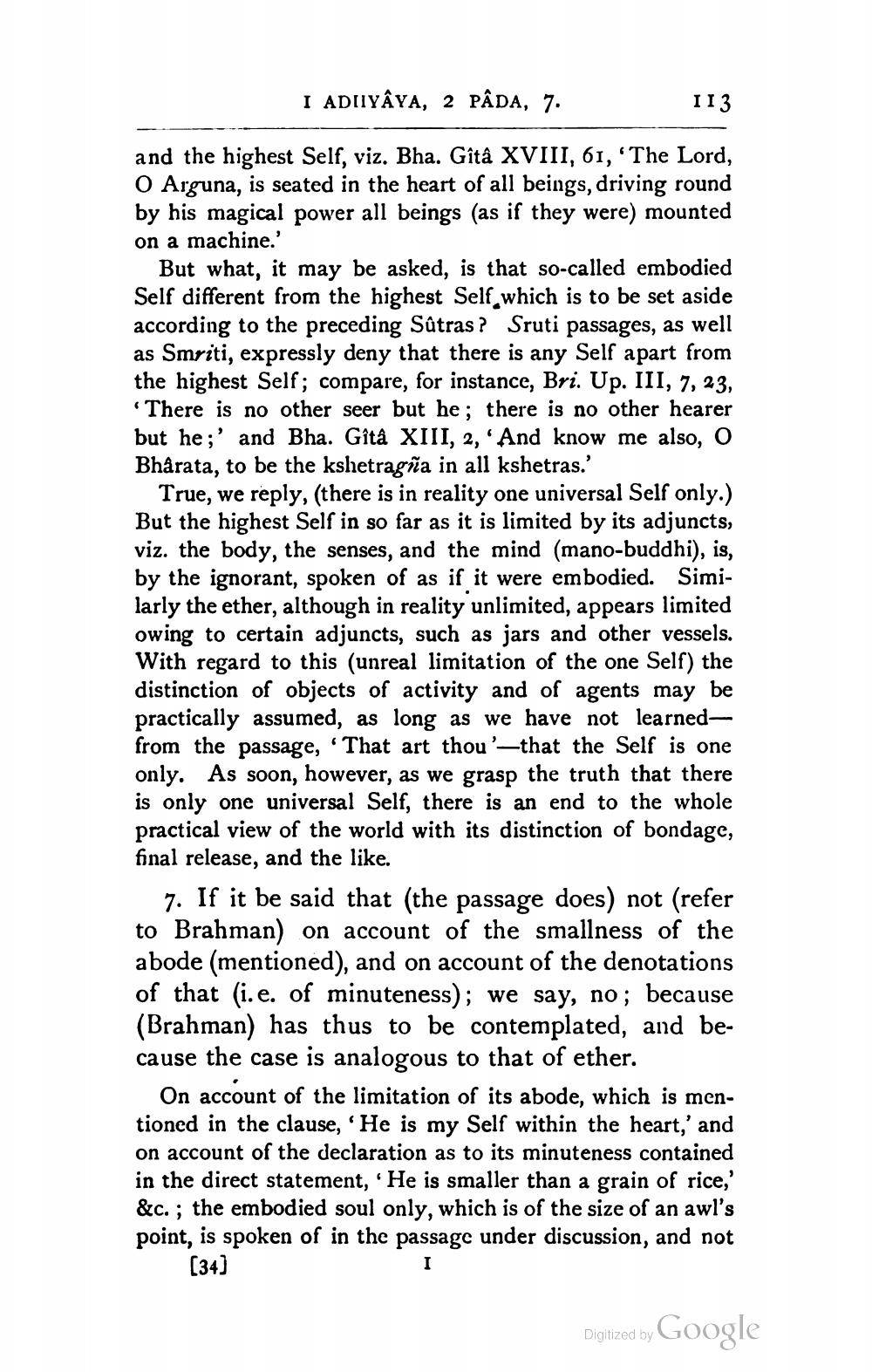________________
I ADIIYÂYA, 2 PÂDA, 7.
II3
and the highest Self, viz. Bha. Gîtâ XVIII, 61, 'The Lord, O Arguna, is seated in the heart of all beings, driving round by his magical power all beings (as if they were) mounted on a machine.'
But what, it may be asked, is that so-called embodied Self different from the highest Self which is to be set aside according to the preceding Sûtras? Sruti passages, as well as Smriti, expressly deny that there is any Self apart from the highest Self; compare, for instance, Bri. Up. III, 7, 23,
There is no other seer but he; there is no other hearer but he;' and Bha. Gîtà XIII, 2, 'And know me also, O Bharata, to be the kshetragña in all kshetras.'
True, we reply, (there is in reality one universal Self only.) But the highest Self in so far as it is limited by its adjuncts, viz. the body, the senses, and the mind (mano-buddhi), is, by the ignorant, spoken of as if it were embodied. Similarly the ether, although in reality unlimited, appears limited owing to certain adjuncts, such as jars and other vessels. With regard to this (unreal limitation of the one Self) the distinction of objects of activity and of agents may be practically assumed, as long as we have not learnedfrom the passage, ‘That art thou '—that the Self is one only. As soon, however, as we grasp the truth that there is only one universal Self, there is an end to the whole practical view of the world with its distinction of bondage, final release, and the like.
7. If it be said that (the passage does) not (refer to Brahman) on account of the smallness of the abode (mentioned), and on account of the denotations of that (i.e. of minuteness); we say, no; because (Brahman) has thus to be contemplated, and because the case is analogous to that of ether.
On account of the limitation of its abode, which is mentioned in the clause, 'He is my Self within the heart,' and on account of the declaration as to its minuteness contained in the direct statement, 'He is smaller than a grain of rice,' &c.; the embodied soul only, which is of the size of an awl's point, is spoken of in the passage under discussion, and not
(34)
Digitized by Google




